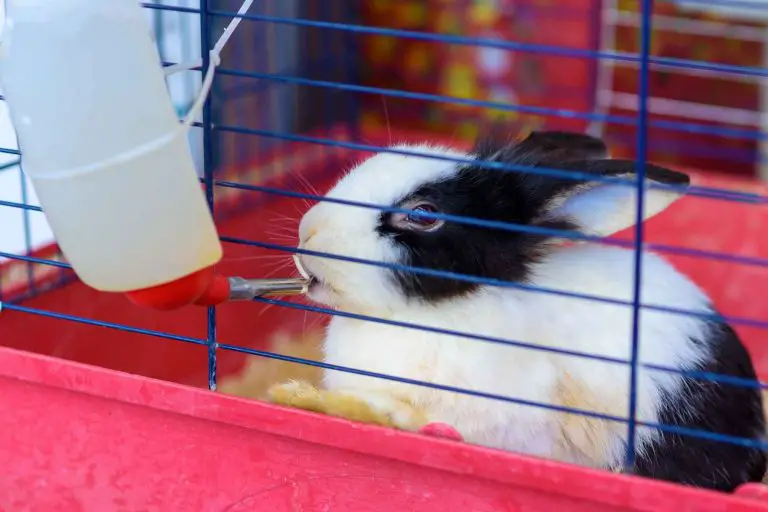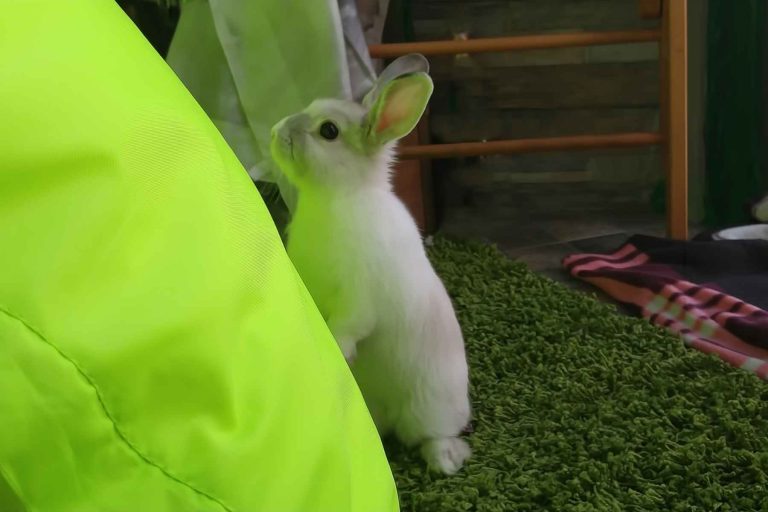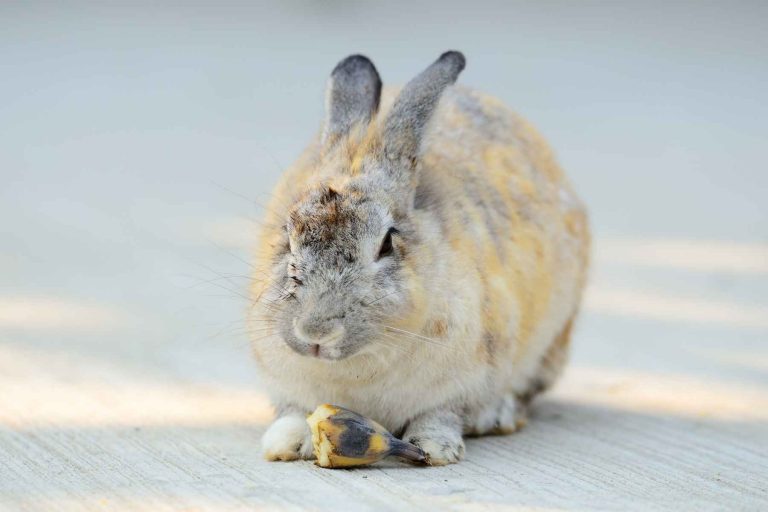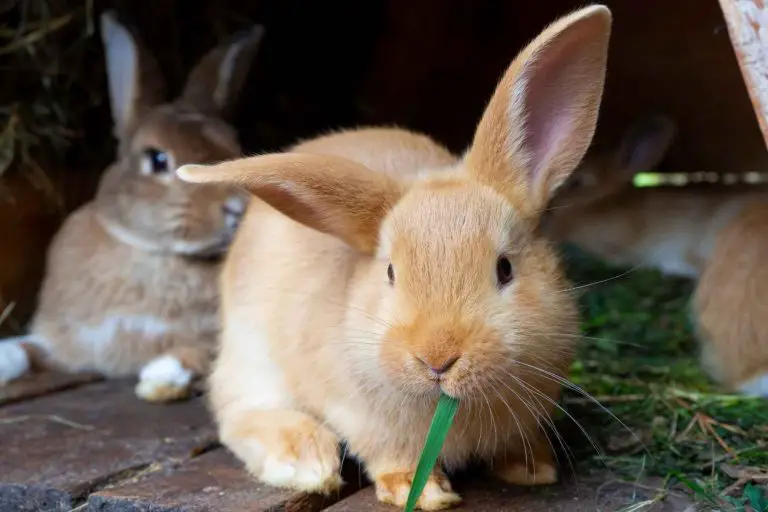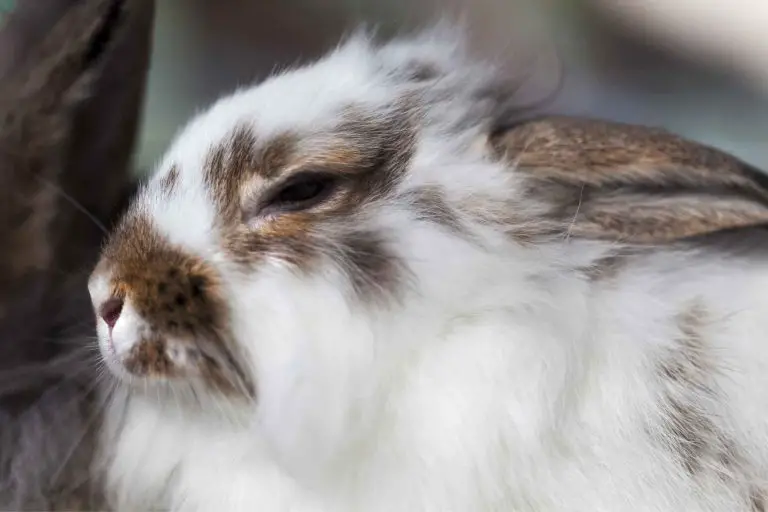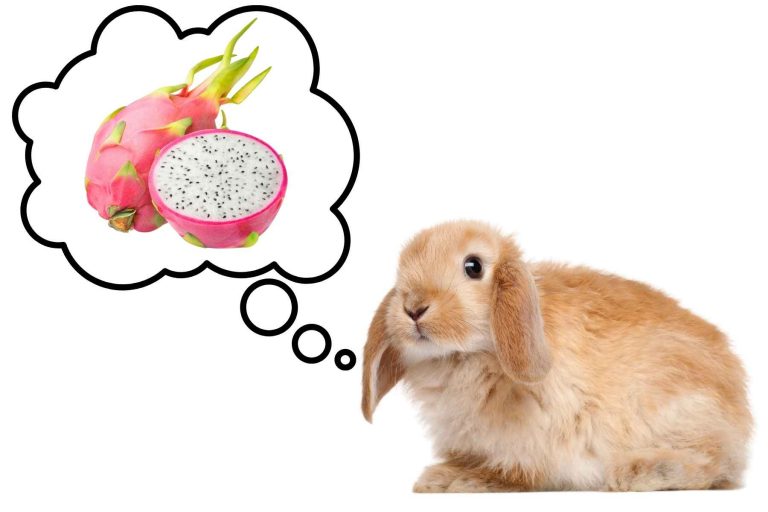Can Rabbits Eat Bell Peppers? A Comprehensive Guide
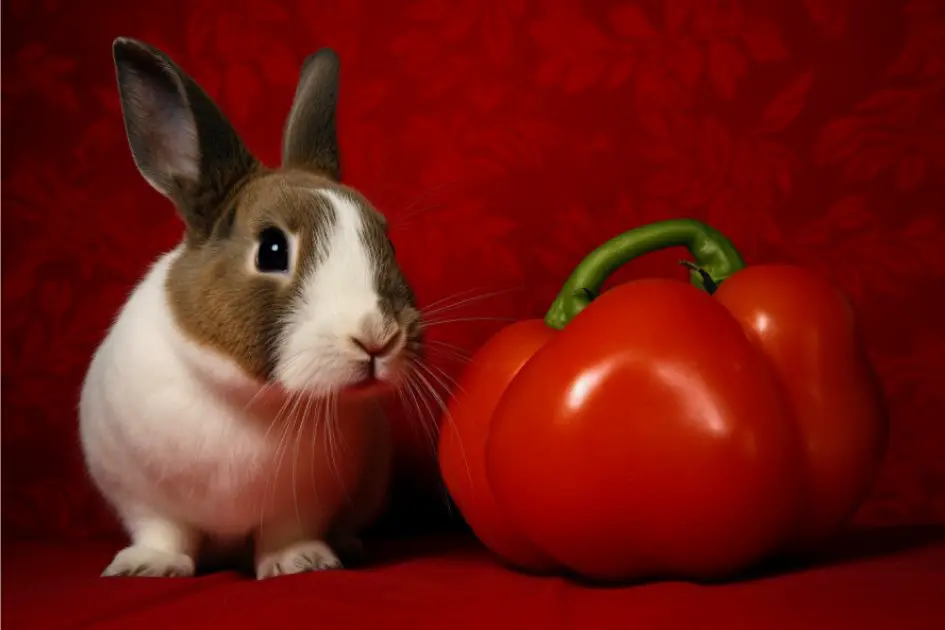
When it comes to providing a healthy and varied diet for pet rabbits, owners often wonder which fruits and vegetables are safe to feed their furry friends. One such vegetable is the bell pepper. In this article, the question of whether rabbits can eat bell peppers will be addressed, considering both the potential benefits and drawbacks of including this vegetable in a rabbit’s diet.
Bell peppers, also known as sweet peppers, are a versatile and nutritious vegetable that can be found in a variety of colors – green, red, yellow, and orange. These colorful vegetables are packed with vitamins and minerals that are beneficial for both humans and rabbits. However, it is essential for rabbit owners to understand the potential effects of bell peppers on their pet’s digestive system, as well as the appropriate serving size and frequency.
Fortunately, rabbits can safely consume bell peppers in moderation. The vitamins and minerals found in bell peppers contribute to a rabbit’s overall health, and their crunchy texture can provide mental and physical stimulation. It is important to note that while bell peppers are a suitable addition to a rabbit’s diet, they should not replace the primary dietary staples of hay, leafy greens, and a small portion of high-quality rabbit pellets.
Can Rabbits Eat Bell Peppers?
Rabbits are known for their love of vegetables and fruits. When it comes to bell peppers, rabbits can safely consume them in moderation. Bell peppers are non-toxic and pose no immediate health risks to rabbits when fed in small quantities as an occasional treat.
However, it is essential to note that bell peppers are not a natural part of a rabbit’s diet. Their primary food source in the wild consists of grasses and hay, which provide the necessary fiber for their digestive systems. Introducing too many vegetables, fruits, or other treats can lead to gastrointestinal upset and other health issues.
When feeding bell peppers to rabbits, it is advised to follow proper preparation methods like washing and cutting the pepper into small, manageable pieces. Avoid giving them the seeds and the stem as these parts can cause choking hazards or digestive issues.
Bell peppers come in various colors, including green, red, yellow, and orange. Although they all belong to the same family, their nutritional content varies slightly. It is essential to consider their sugar content, as rabbits have sensitive digestive systems and should not have a high sugar intake.
In conclusion, while bell peppers can be a safe and occasional treat for rabbits, remember to limit their consumption and always prioritize providing them with a balanced diet consisting mainly of hay, leafy greens, and high-quality rabbit pellets.
Nutritional Value of Bell Peppers
Bell peppers are a healthy and nutritious food option for rabbits, providing an abundance of vitamins, minerals, and antioxidants.
One of the primary vitamins found in bell peppers is vitamin C, essential for the growth, development, and maintenance of various bodily tissues. Rich in vitamin C, these peppers play a significant role in the production of collagen, wound healing, and the overall immune system’s functionality.
Moreover, bell peppers contain a substantial amount of vitamin B6, which assists in vital metabolic processes, contributing to the proper functioning of the nervous system and the synthesis of neurotransmitters. It’s also essential for maintaining healthy brain function and the production of red blood cells.
Additionally, being a significant source of antioxidants, bell peppers can positively impact the overall health of rabbits. These antioxidants help protect the body from the damaging effects of free radicals, reducing the risk of oxidative stress and chronic diseases.
Bell peppers also provide essential minerals such as potassium, magnesium, and iron. Potassium is vital for maintaining fluid balance, nerve transmission, and muscle function, while magnesium contributes to bone health, energy production, and nerve function. Iron plays an integral role in oxygen transport throughout the body and contributes to the production of hemoglobin in red blood cells.
In summary, the nutritional value of bell peppers is undeniable, offering rabbits an array of health benefits through essential vitamins, minerals, and antioxidants.
Types and Colors of Bell Peppers
Bell peppers are available in various colors and types, which contribute to their vibrant look in a salad or a stir-fry. The most common colors of bell peppers include green, red, yellow, and orange. While each color has its own unique flavor profile, all bell peppers provide valuable nutrients for both humans and animals.
Green bell peppers are typically the least ripe and least sweet among the different colors. As they ripen, they change colors, transitioning from green to red or yellow. This change in color of the bell pepper is accompanied by an increase in nutritional value and a shift in flavor, becoming sweeter and more palatable as they ripen.
Red, yellow, and orange bell peppers are considered the ripe variations, with each color boasting a slightly different taste. Red bell peppers, which are simply fully-ripened green peppers, usually present a sweeter and milder flavor compared to their green counterparts. Orange and yellow bell peppers, on the other hand, have a slightly different variety, providing sweetness and a unique fruity taste.
Here is a simple summary of the four main types of bell peppers and their characteristics:
| Type | Taste |
| Green Bell Peppers | More bitter, less sweet |
| Red Bell Peppers | Sweeter, milder |
| Yellow Bell Peppers | Sweet, fruity |
| Orange Bell Peppers | Sweet, fruity |
The variety in color and taste of bell peppers adds diversity and flavor to meals, making them a popular ingredient in many dishes.
Benefits of Bell Peppers for Rabbits
Bell peppers offer various health benefits to rabbits, making them a nutritious addition to their diet. One notable advantage is their high vitamin A content, essential in maintaining a rabbit’s healthy immune system and vision.
Additionally, these vegetables provide fiber, necessary for maintaining a rabbit’s digestive health. Fiber also aids in preventing obesity, a common issue faced by domestic rabbits due to limited physical activity.
Bell peppers are also a source of potassium, an essential mineral that contributes to proper muscle function, electrolyte balance, and overall wellness in rabbits. This, combined with a low-calorie count, makes bell peppers an ideal treat to ensure your pet stays hydrated and healthy.
Though rabbits acquire most of their protein requirements from hay, the small amounts of protein present in bell peppers can further support their overall health. By offering bell peppers as an occasional treat, you can contribute to effective growth, muscle development, and maintenance of your rabbit’s bodily functions.
Potential Risks and Precautions
Feeding rabbits bell peppers can pose a few risks, and it is important to be aware of the potential hazards and follow precautions to ensure the safety and health of the pet. The seeds and stem of bell peppers are not recommended for rabbit consumption, as they can be harmful and hard to digest. Furthermore, the high fiber content in bell peppers could lead to gas and bloating in some rabbits, so observing the pet’s reaction after introducing the vegetable is crucial.
Some rabbits may have a sensitive digestive system, which makes it essential to introduce bell peppers gradually, starting with a small portion. Ingesting large amounts of bell peppers or any vegetable high in sugar may cause diarrhea, so feeding in moderation is a key consideration. Along with the size and quantity, the pet owner should closely monitor the rabbit’s reaction to the new food, making necessary adjustments if any adverse side effects occur.
Beyond the rabbit’s digestive system, there are physical risks associated with feeding bell peppers. Choking can be a concern if the pepper is not cut into small, manageable-sized pieces for the rabbit. Additionally, the presence of pesticides on non-organic vegetables is a concern, as they can be hazardous to the rabbit’s health. Washing the bell peppers thoroughly or opting for organic options is a simple way to minimize this risk.
Despite the many advantages of bell peppers, it is important to remember that not all parts of this fruit are safe for rabbits. Certain elements such as seeds, stems, and high sugar content can pose risks, making it essential to follow the appropriate precautions and monitor the pet’s response closely. By being vigilant and responsible, rabbit owners can confidently incorporate bell peppers into their pet’s diet without compromising their wellbeing.
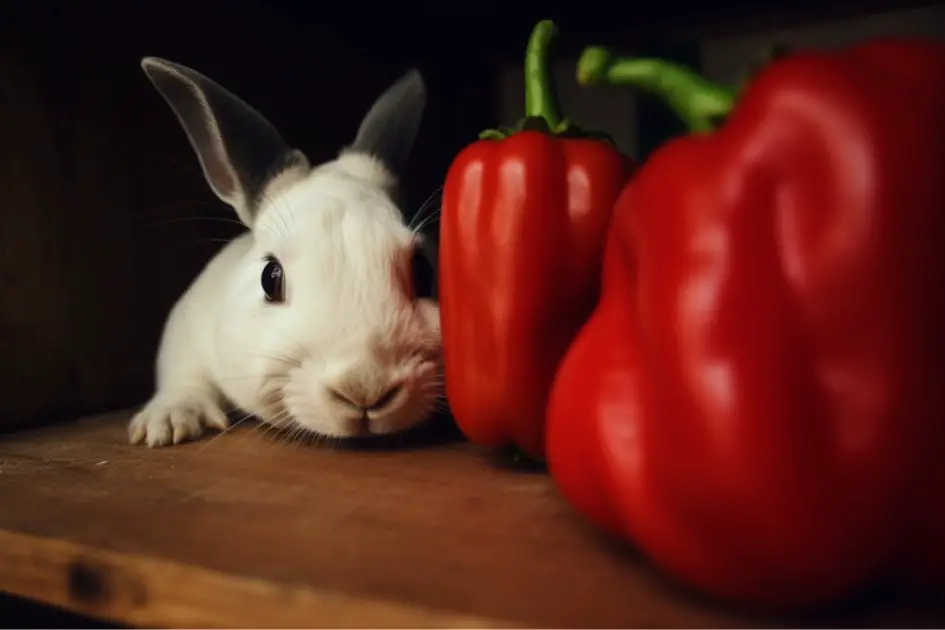
Serving and Introducing Bell Peppers to Rabbits
While bell peppers can make a great treat for rabbits, it’s essential to introduce them slowly and carefully into your rabbit’s diet. As part of a well-balanced diet, rabbits should primarily be consuming fresh hay, pellets, and a variety of fresh vegetables. Bell peppers, including red bell peppers, can be one of the vegetables offered.
When introducing bell peppers for the first time, start by offering your rabbit a small piece of the flesh, avoiding seeds and the stem. Monitor your rabbit’s reaction and ensure there are no adverse effects such as diarrhea. If your rabbit seems to tolerate the bell pepper well, you can gradually increase the serving size over time.
Keep in mind that moderation is key when it comes to feeding rabbits bell peppers. A small portion of red bell pepper can be offered once or twice a week as a treat, alternating with other types of fresh vegetables. As you introduce bell peppers, make sure to continue providing plenty of fresh hay to maintain a healthy rabbit’s diet.
Here are some steps to serve bell peppers to your rabbit:
- Wash the bell pepper thoroughly to remove any pesticides or dirt.
- Remove the stem and seeds, as well as any soft or discolored areas.
- Slice a small piece of the bell pepper flesh for your rabbit to try initially.
- If your rabbit reacts well, gradually increase the serving size over time.
- Always maintain a balance between bell peppers, other vegetables, fresh hay, and pellets in your rabbit’s diet.
Serving Size and Frequency
The size of your fluffy friend should determine the amount of food it can eat. It’s a simple equation that ensures your bunny stays healthy and happy.
We recommend a portion of 2-3 tablespoon bell pepper pieces for adult rabbits. This amount is perfect for those big bunnies who need a little extra fuel to hop around. But for our smaller rabbits or dwarf varieties, we suggest cutting that portion in half. That’s right, no more than 1/2-1 tablespoon of bell peppers once or twice per week.
Now, we know what you’re thinking. “But can’t I just give my rabbit more food if it looks hungry?” Well, we’re here to tell you that’s a big no-no. These amounts should be used no more than once or twice per week, and never on two consecutive days. Trust us, your rabbit will thank you for it.
At the end of the day, it’s all about keeping your furry friend healthy and happy. So, let’s stick to the plan and give our rabbits the perfect amount of food they need to thrive.
| Rabbit Weight | Bell Pepper Portion Size | Frequency |
| 2 lbs | 1/2-1 tbsp | 1-2 times per week |
| 4 lbs | 2 tbsp | 1-2 times per week |
| 6 lbs | 3 tbsp | 1-2 times per week |
Alternatives to Bell Peppers for Rabbits
Although bell peppers are safe for rabbits to consume, it’s essential to offer them a varied diet with a mix of vegetables to ensure they receive all the necessary nutrients. There are plenty of other vegetables that are suitable and beneficial for rabbits.
Carrots are an excellent option, providing vitamins and minerals essential for a rabbit’s health. However, due to their high sugar content, carrots should be fed in moderation, as an occasional treat rather than a main part of their diet.
Leafy greens like spinach, kale, and lettuce are also great choices for rabbits. They’re packed with nutrients and hydration, contributing to the rabbit’s overall well-being. Here is a list of healthy leafy greens for rabbits:
- Spinach
- Kale
- Romaine lettuce
- Swiss chard
- Collard greens
Other vegetables, such as zucchini and cauliflower, can be included in a rabbit’s diet in moderation. Zucchini contains fiber and a small amount of vitamins and minerals, making it a healthy addition to rabbits’ meals. Cauliflower, on the other hand, should be fed sparingly due to its gas-producing properties, which might lead to digestive issues in rabbits.
In conclusion, while bell peppers can be a part of a rabbit’s diet, incorporating a variety of vegetables ensures they receive balanced nutrition. Make sure to introduce new vegetables gradually and monitor for any adverse reactions, always tailoring the diet to the specific needs of your rabbit.

